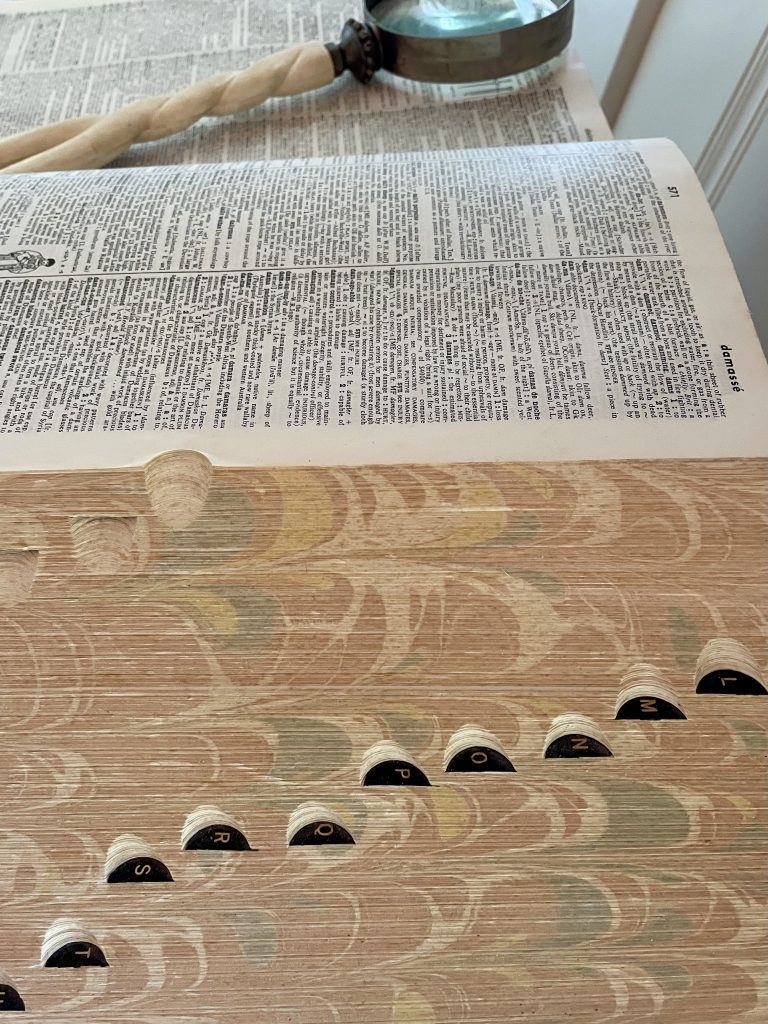Words are things.
Maya Angelou

After a harrowing scramble through a large intersection for the proper site to pull over, I rolled down my window to address a blue package of an officer. He sternly mouthed, “Ma’am, did you understand that you were going 50 miles an hour in a 30 mile zone?” “No I did not,” I said. He abruptly departed to his patrol car with my license and insurance card.
Oh boy, I thought to myself – here I go. Old vestiges of childhood shame were building in my chest. Upon returning he presented me with a kindly smile. “An accident would have changed your day – please don’t go over the speed limit, just take your time,” he said. The combination of authority and words of love burst open my humble flood gates for a better day.
A tough playground friend once taught me to chant a ditty to some boys who taunted my childhood condition of super skinny. Sticks and stones can break your bones but words will never hurt you. Good try.
What I didn’t know then was that their words only had power because I doubted myself. Still it was her words of encouragement that served up the ultimate healing. This diagnosis trailed into adulthood where chants are often disguised as innuendo and worse – indifference.
The road to a humble confidence is long and windy. We must navigate our way from cold comments to be able to employ reactions of good will and grace. I suppose that “sticks and stones” should be considered as a course in becoming what author Margery Williams calls “real” in The Velveteen Rabbit.
One night before bedtime my granddaughter Pepper dawdled next to the giant dictionary that presided at the center of my first childhood home. “Gal, what is this big book?” She said. “It’s a dictionary,” I said slowly realizing that this hard back anchor, the introduction to my formal education, was almost as extinct as the newly vanished Northern White Rhinoceros.
Flipping the ultra thin pages of Webster’s Third New International Dictionary she threw me a questioning gaze which positioned us like characters in Jules Verne’s Paris in the Twentieth Century. The sci-fi novel describes a society which places value only on business and technology. Looks like pigs might fly.
“A dictionary is the book we all used to look up the meaning of words,” I explained. “Is this the ONLY one?” She blinked.
A sober laugh was all that I could muster and with a crinkle of my brow I continued, “You’ll see fewer of these books as life goes on.” I quoted my father who reminded me of the transitory nature of life with “buggy whips were once indispensable.”
“What’s a buggy whip?” She said.
For relief we turned to the illustrations of various dogs and studied the definition of “dog” wedged between “doofunny” and “dogalley.” Moving on to the abstract we proceeded to the word “love” which of course was without an interpretive graphic plate, but we did discover countless definitions, the most pointed being: LOVE – “to cherish or foster with divine mercy..”
“We can do love without a word,” I said and hugged her. Such an exchange I’ll never forget as it was loaded with multiple openings for life lessons and yet I simmer on the fact that actual words can often be limiting. Over time I’ve gleaned that young ones learn more from watching than listening.
And still it’s sad to note that since a loving feeling is not always the outcome of words exchanged, we are destined to pursue the peace that passeth all understanding in another way. A consideration of any harshness we bring on with our own words can be like the farmer who through trial must become illuminated to the fact that a depleted soil must be enriched in the proper way.
Even the vacuum of essential words which we wished were forthcoming from another can be a starting point where we gather ourselves to empathize instead of defend. Solo-nurturing is a key to this power as has been marked by all avatars of the world’s great religions.
Author Johann Hari refers to “junk values” as the condition in which we value something that isn’t worthy of being valued. Duh – ain’t it the truth that we value the quick emotional response until we notice that certain enlightened folk pause and collect their better nature before they speak.
An acquaintance once suggested taking time to pause and consider if what might be said is true and/or even necessary. Isn’t it subduing to realized that all some people have ever heard are bitter words. Can we carry on in the realm of inspiring or helpful and mean it?
I realize that I’m not as chatty as I once was. I’m not sure if this is the natural progression of a life, the quarantine experience or if I’m aware of how little I really know and as a result choose to put a lid on it. Somedays I’m pushed to forgive myself for thoughtless words or even the disregard of the other standing right before me. Often I’m reminded to pause and rescue myself from the use of lame egocentric words rooted in me, mine and my group.
D and I help each other in this category by pointing our unbecoming verbal positions. It helps to share with another in the plight. Certain words or lack words can be a waste of time, a waste of life.
On the other hand daily duties always bring on the unexpected mentor. On our twin adventure into the land of reclaiming physical health, we met a young orthopedist who turned to D paused and said, “I am so sorry how you have suffered.”
When words of love have the ability to return us to the source of divine mercy, why would we ever go for the “junk value” of letting it rip?